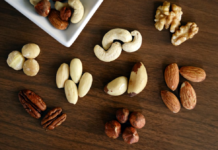Healthy meal prep is a proactive approach to nutrition that involves planning, preparing, and storing meals ahead of time to support a balanced and nutritious diet. By dedicating time to meal prep, you can save time during busy weekdays, make healthier food choices, and avoid the temptation of fast food or convenience meals. This article explores the benefits of healthy meal prep, essential steps for effective meal planning, and tips for preparing nutritious meals in advance.
Benefits of Healthy Meal Prep
- Time-Saving: Meal prep allows you to batch cook and portion meals in advance, saving time on daily meal preparation. This is especially beneficial for busy individuals or families with hectic schedules.
- Cost-Effective: By buying ingredients in bulk and cooking in larger quantities, meal prep can be cost-effective compared to dining out or purchasing pre-packaged meals.
- Portion Control: Pre-portioned meals help you maintain portion control and avoid overeating, which can contribute to weight management and overall health.
- Nutrient-Dense Choices: Planning meals in advance allows you to focus on nutrient-dense foods, including lean proteins, whole grains, fruits, vegetables, and healthy fats, ensuring a well-balanced diet.
- Reduced Food Waste: Meal prep helps minimize food waste by using ingredients efficiently and storing leftovers for future meals.
- Consistency: Following a meal prep routine promotes consistency in eating habits, making it easier to stick to health goals such as weight loss, muscle gain, or improved overall nutrition.
Essential Steps for Effective Meal Planning and Prep
- Set Goals: Determine your nutritional goals, whether it’s weight management, muscle building, improved energy levels, or specific dietary preferences (e.g., vegetarian, gluten-free). Tailor your meal prep to align with these goals.
- Create a Meal Plan: Plan your meals for the week ahead, including breakfast, lunch, dinner, and snacks. Consider incorporating a variety of foods from different food groups to ensure a balanced intake of nutrients.
- Make a Shopping List: Based on your meal plan, create a shopping list of ingredients you’ll need for the week. Organize the list by food categories (e.g., fruits, vegetables, proteins, grains) to streamline your grocery shopping.
- Choose Nutrient-Dense Foods: Opt for whole, unprocessed foods whenever possible. Include lean proteins (chicken, fish, tofu), complex carbohydrates (brown rice, quinoa, sweet potatoes), healthy fats (avocado, nuts, olive oil), and a variety of fruits and vegetables.
- Batch Cooking: Cook large batches of staple foods like grains, proteins, and vegetables that can be used in multiple meals throughout the week. Use different cooking methods (baking, grilling, steaming) to add variety.
- Portion and Pack: Divide cooked meals into individual portions and store them in meal prep containers. Label containers with the meal name and date to track freshness. Consider investing in portion-controlled containers for easy serving sizes.
- Incorporate Variety: Keep meals interesting by rotating ingredients, flavors, and cuisines. Experiment with new recipes, spices, and cooking techniques to prevent mealtime monotony.
- Include Snacks: Prep healthy snacks like cut fruits, vegetable sticks with hummus, Greek yogurt with berries, or homemade energy bars to have on hand for between-meal cravings.
- Storage and Safety: Store prepared meals in the refrigerator or freezer based on their shelf life. Follow food safety guidelines for storing, reheating, and consuming leftovers to prevent foodborne illnesses.
Tips for Nutritious Meal Prep
- Focus on Lean Proteins: Include a variety of lean proteins such as chicken breast, turkey, fish, tofu, beans, and lentils to support muscle repair and growth.
- Load Up on Vegetables: Fill half of your plate with colorful vegetables to boost fiber intake, vitamins, minerals, and antioxidants. Roast or stir-fry vegetables for added flavor and texture.
- Choose Whole Grains: Opt for whole grains like brown rice, quinoa, whole wheat pasta, and oats over refined grains for sustained energy and fiber content.
- Healthy Fats: Incorporate sources of healthy fats such as avocados, nuts, seeds, olive oil, and fatty fish (salmon, mackerel) for heart health and satiety.
- Minimize Added Sugars and Processed Foods: Limit processed foods, sugary snacks, and beverages high in added sugars. Choose natural sweeteners like honey, maple syrup, or stevia when needed.
- Hydration: Don’t forget to include hydration in your meal prep. Keep water bottles or infused water pitchers ready for easy access throughout the day.
- Prep Breakfast Options: Prepare breakfast items like overnight oats, egg muffins, or smoothie packs that can be quickly assembled in the morning for a nutritious start to the day.
- Mindful Eating: Practice mindful eating by savoring each bite, chewing slowly, and paying attention to hunger and fullness cues. Avoid distractions like TV or screens during meal times.
- Flexibility: Allow flexibility in your meal prep routine.

















